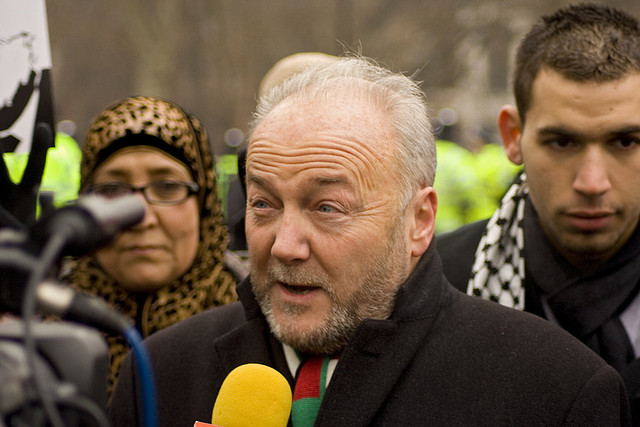
Why does the student left hate free speech?
George Galloway’s planned talk at Bristol University has been cancelled. Kyle Mulholland asks why.
Owing to George Galloway’s interesting comments about the on-going Assange case, Mr Galloway’s talk for the Bristol International Affairs Society has been cancelled. He is now pursuing legal action against the National Union of Students over a related matter. This is nothing new.
In 2010 the Durham Union Society was bullied into cancelling a debate at which speakers from the British National Party were due to speak. They had been sent a strongly-worded letter from the NUS’s ‘Anti Fascism Committee’, which threatened to bus in protesters should the event go ahead, and included the astonishing warning: “If any students are hurt in and around this event, responsibility will lie with you”.
The UCL student union earlier this year passed a motion attempting to impose draconian restrictions on the activities of the university’s pro-life society. They demanded that they be able to nominate people to chair the society’s events, and that the society must be forced to invite pro-abortion speakers every time it holds a talk.
Similar but less extreme positions have been adopted at various other universities, including Bristol.
Sophie Bennett, former UBU ‘Welfare and Equality Officer’ said on the Galloway event’s Facebook page that Mr Galloway should not be given a platform because his opinions are ‘harmful’ and that ‘when it comes to rape there is no debate’.
Call me a soppy liberal, but I tend to think that everything must be debated as a means of getting closer to discovering the truth. The sentence formulation: ‘when it comes to X, there is no debate’ is one which I absolutely disagree with.
“It is much better to challenge them than to ban them”
Once fringe topics like these are closed off, it is not too much of a stretch to have the word ‘rape’ replaced by all manner of other things. What is and is not ‘rape’ is itself an intriguing question. Yet, it is now wholly off-limits thanks to the careful manoeuvring of skilful radicals.
Do we ‘endorse’ or ‘condone’ people’s statements, acts or opinions because we have invited them to speak for us? No.
I have been a part of a society that invites speakers to make the case for changes in the law which I think are immoral or even wicked, but I maintain that it is much better to challenge them than to ban them.
The real motive lying behind the silencing of dissenters ought to be obvious, but I fear that outside the small nucleus of people who initiate these purges, most people remain blissfully oblivious.









































